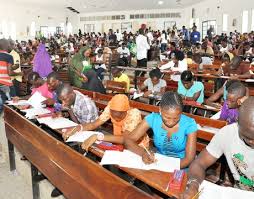The expected turn around on bandwidth availability especially in various federal and state tertiary institutions in the country, is still not yet a reality despite President Muhammadu Buhari’s one year in office.
Unfortunately efforts from the Educational and Information Communication Technology sectors that are directly involve with ensuring that the tertiary ecosystem operates with innovative technology driven by internet connectivity cannot be reckon with.
Just as the Research and Development centres are still facing bandwidth challenges in spite of interventions by government and foreign stakeholders Nigeria is still a look of the dark-age with scarcity bandwidth in the socio-economic day of the citizenry with tertiary institutions as worst hit.
Findings by NewswatchNigeria revealed that about 1,000Mbps of bandwidth per month is required to effectively drive information and communications technology in each campus but none of the public tertiary institutions is close to 50 percent of this scarce necessity.
According to industry watchers this bandwidth scarcity situation is inimical to realizing the country’s quest for a knowledge base economy required to compete globally with the developed countries.

According to Operations Manager, Bandwidth Consortium, Dewole Ajao the situation is a disappointment adding that the bandwidth challenge as lived the with tertiary institutions despite successes recorded to improved service provision to all the institutions by government.
Bandwidth Consortium is saddled to make bandwidth readily available and cheaper for research and higher institutions of learning in the country.
But, “The situation is pathetic in our effort to drive a knowledge economy that is supposed to start from the tertiary institutions, except few private universities whose population is not much that get required bandwidth all other public tertiary institutions and research don’t get anything near what they require,” he said.
He attributed the situation to cost of bandwidth in the country.
“Funds to buy bandwidth are the major challenge why tertiary and research institutions are not getting their required bandwidth to drive information and communications technology in their campuses. Even with government intervention through the launch of Nigeria Research and Educational Network (NgREN), Universal Service Provision Fund (USPF)among others the story has remained the same,” he said.
He decried lack of monitoring of what various research institutes are doing in terms of giving them task and patronizing their research work products for the benefit of the society.
It would be recalled that National University Commission in 2014 launched NgREN is expected to deliver to federal universities connected to the network 155mbps equivalent to Synchronous Transport Module, level 1 (STM-1), This has not effectively solved the bandwidth problem in those connected universities as none of the connected universities get near 155mbps per month.

More so, cost of the delivered bandwidth is another prohibiting factor as there has been change in the model of pricing for bandwidth from NgREN, initially the price was supposed to be 40 percent off the market price, but today it is sold at market price.
This it was learnt has necessitated the move to change the model of payment by seeking to access Tertiary Educational Trust Fund (TETF) for the payment of bandwidth from NgREN.
Managing Director, Internet Exchange Point of Nigeria,(IXPN) Mohammed Rudman, stressed the need for the required bandwidth for higher educational institutions and research centres.
According to him, apart from National Research Network (NREN), Google is partnering with Nigerian universities to remove Internet access barriers and to equip them with free communication tools.
Through the Google Apps Supporting Programs (GASP), a Google initiative aimed at increasing Internet usage in universities across Africa, through the provision of Internet bandwidth, infrastructure grants, technical consulting and Google Apps for Education deployment support and training, the company supports African universities to use technology more effectively for research and collaboration.








